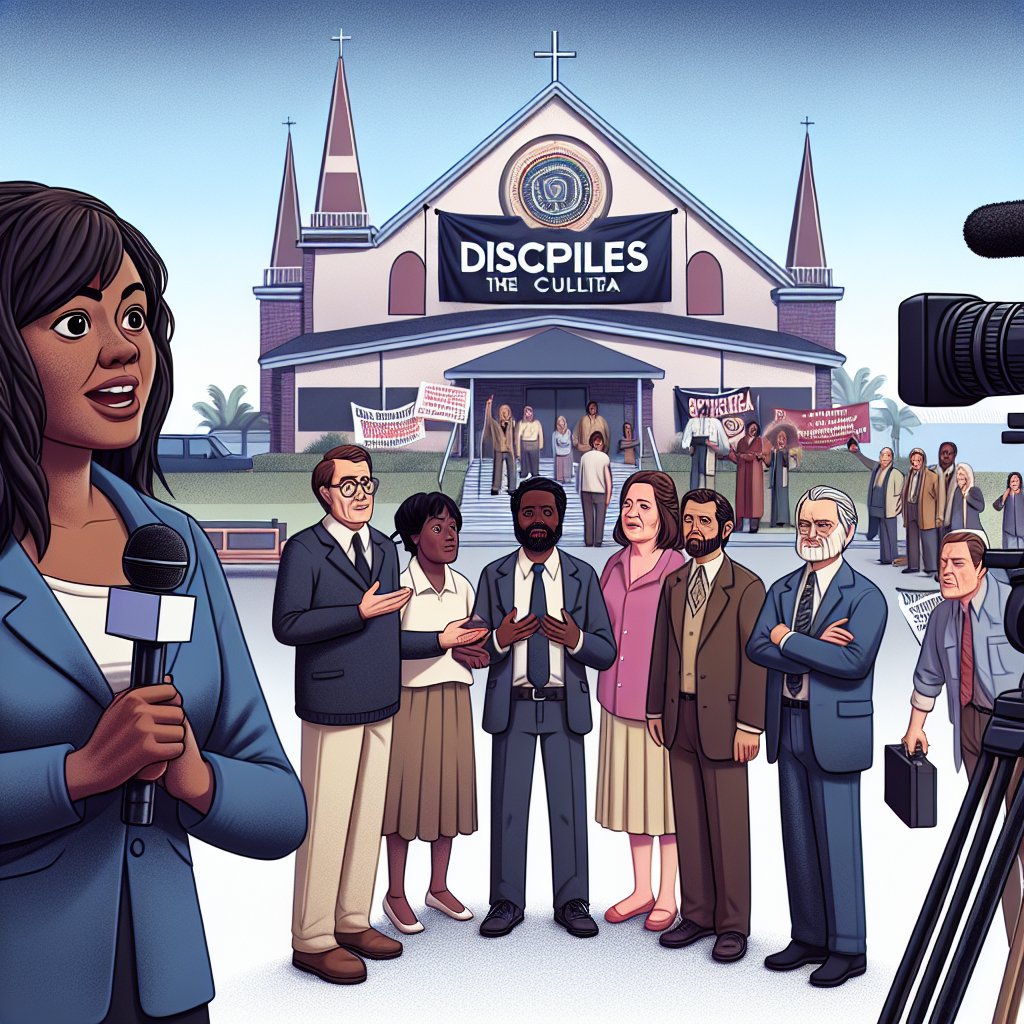Content created by AI
Exposé on TB Joshua: BBC Africa Docuseries Uncovers Allegations of Abuse and Torture
A recent BBC Africa Eye investigative documentary has brought to light harrowing allegations against the late Temitope Balogun Joshua, better known as TB Joshua, the former head of the Synagogue Church of All Nations (SCOAN)—once considered one of the world's largest Christian evangelical movements. Despite the church's claims of falsehood regarding the allegations, over 25 former congregants have stepped forward, narrating chilling stories of abuse, including rape, flogging, and forced abortions, under the direction of Joshua.
The documentary, entitled ‘Disciples: The Cult of TB Joshua,’ was crafted by reporters Charlie Northcott and Helen Spooner and unfolded a narrative of almost thirty years of alleged abuse. Former members from a diverse range of countries—including the United Kingdom, Nigeria, the United States, South Africa, Ghana, Namibia, and Germany—have provided consistent testimonies about their ordeals within the church, some covering events up until 2019. Many of these former disciples were mere teenagers when they joined the movement.
BBC Africa Eye’s investigation spanned over two years and uncovered disturbing accounts that the late TB Joshua had engaged in acts of whipping, chaining, and even child abuse. Several women reported that they were subjected to repeated instances of rape within the SCOAN compound in Lagos, incidents which also led to coerced abortions conducted within the premises of the church. One woman came forward with the claim that she had been forced to undergo five such procedures.
The credibility of Joshua's so-called miraculous feats was also called into question, with former members attesting that these televised incidents were faked. Throughout his career, TB Joshua was not only a prominent religious leader but also a multi-millionaire, espousing messages of prosperity and wealth accumulation, a contradiction to the sufferings narrated by his alleged victims.
Since Joshua's demise on June 5, 2021, his wife, Evelyn, has taken up the mantle of leadership over the church. When approached about the array of allegations, the church's response was dismissive, arguing that such unsubstantiated claims against the late 'Prophet' Joshua were recurrent but unfounded.
Remarkably, some of the witnesses indicated that their attempts to bring Joshua’s alleged abuse to the attention of the authorities were met with silence or inaction. For instance, a British couple who fled the church relayed their experiences and shared video evidence with the British High Commission in Nigeria as early as March 2010. They claim their allegations were not acted upon, even though one of them, the wife, attested to being sexually assaulted and raped by Joshua. The UK’s Foreign, Commonwealth & Development Office has since stated that they take such allegations seriously, urging victims to report to appropriate channels.
The deep dive into the dark underbelly of a religious institution by BBC Africa has opened a Pandora's box, sparking a broader conversation about the accountability of religious leaders and the protection of vulnerable followers within faith-based communities. As the ripple effects of the documentary continue to reverberate, victims and advocates alike are calling for justice and a reevaluation of faith leadership roles, ensuring that such dire accusations do not remain unheard or unaddressed.





